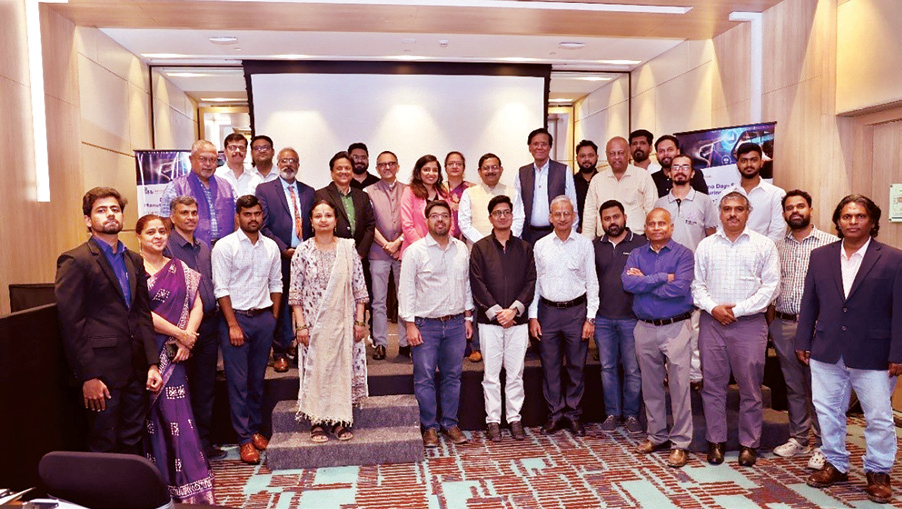
Edtech partied long on cash. Now, the hangover, long hours, job loss, pay cuts, targets
Continental and Italian cuisines, expensive booze, colleagues grooving to DJ music, and a chance to brush shoulders with the founders at an upmarket Bengaluru club.
For 28-year-old Aditi Jaiswal who works at an edtech company in India’s IT capital, all this was a quarterly affair. But now the booze has dried up and music stopped. Last such gathering sponsored by the company happened more than a year ago.
“I have been working here for the last four years now. The place has changed unrecognisably in the last year or so. They have started charging for the daily meals that used to be available for free.
The work pressure has increased drastically. My salary has suffered two rounds of cuts, first 10% and then 20%. Work hours have been increased from 9 to 11, more review meetings are being held where everyone has to give the reasons for having not met the targets. And this is not the case only with our company. The entire edtech industry is going through this rationalisation,” said Jaiswal who is looking to change her job.
Two years ago, her employer that specialised in offering courses for UPSC preparation was acquired by a bigger player in the sector. New rules were set. Flaunting money, hiring big and breathless expansion were checked.
And these made a direct impact on the work culture and employee wellbeing at the firm that has around 100 people. It’s no more the perky job Jaiswal used to brag about before her friends and family who were intrigued by the industry that has shrunk 400 sq. ft. classrooms in India into five-inch screens.
The irrational exuberance of the edtech industry is getting a reality check. Byju’s was only the beginning. Now the industry is rationalising, consolidating, and trimming down for a period of pragmatism.
Jaiswal’s story is characteristic of a sunrise sector in India that saw a massive boom before flattening. It’s picking pieces after the crash of that high-growth-no-profit roller coaster and rewriting a syllabus that’s sustainable and has profitability as its main chapter.
After a round of cut-throat com - petition to acquire customers that left all players bloodied, the industry is taking a predatory stance again but this time the goal is not to fight the competition but to simply end it through acquisitions.
All this has caused an internal churn at these new age startups that now enter a phase filled with uncertainty. Pink slips, pay cuts, lengthy shifts, unrealistic targets, no appraisals, and a steeplechase for profits have begun in a sector that roared not so long ago and gave birth to unicorns regularly.
Funding has dried up from $4 billion in 2021 to under $200 million as of July 2024, propelling acquisitions and even shut downs. The edtech industry is going through a critical transformation and only a few big names are likely to survive in the end.
From flamboyance to rationalisation, the industry is going through a period of shake-up. Major players like Physics Wallah and Adda 24 have acquired smaller startups such as StudyIQ, Veeksha, Success Ease and coaching institutes to consolidate their positions.
The industry has seen over ten recent acquisitions, including Allen buying DoubtNut and Physics Wallah’s acquiring Xylem Learning. Adda 24 merged the CA test preparation firm Ekagrata Eduserv.
The trend is likely to continue, leaving only a few dominant companies standing as smaller firms either shut down or get absorbed. But some deals are turning out to be mutually beneficial.
"They (Egakrata Eduserv) needed the students and we had the students. We needed the course so they would provide us with the ready-made courses with the teachers. It is a win-win situation for both,” said Anil Nagar, CEO of Adda 24, one of the biggest edtech companies.
Harsh talk, bitter comments, and the chase for profits When Byju’s, the poster boy of India’s edtech industry, came crashing down, it sent shockwaves throughout the sector. It was a red signal for venture capitalists vis a vis investment. Fresh investments today are coming with endless conditions.
And the industry too is changing their operational style to meet efficiency. They must survive on the revenue front and show profits. Unacademy recently announced its pursuit of collaboration and simultaneously declared there would be no salary hike this year.
Although these signs indicate challenges within the company, the founder Gaurav Munjal insists they are on track and will generate record revenue this year. Employees at another EdTech major Adda 24 say that harsh talk has been replaced by the bitter comments in review meetings that has resulted in employees leaving the company.
The older faculty at some of the companies had a contract under which they were expected to teach 50 hours a month. This excluded time spent on preparation for these lectures, content creation and doubts clearing sessions.
In the new contracts being offered, teaching hours have been increased to 70 a month. And the older faculty members are being made to work on the week offs as well.
Edtech going the ecommerce way? Industry experts and edtech founders see parallels for the sector in India’s telecom and ecommerce story and believe the consolidation period will bring stability to the market. “Consolidation gives stability in the market.
It reduces competition and improves unit economics. And that is how big companies survived the transition period,” said a Bengaluru-based independent adviser who works closely with some of the leading edtech firms. He gives the example of ecommerce and telecom sectors.
“In 2012 the e-commerce sector had around 30 companies and now there are two companies in the market– Amazon and Flipkart. The same happened with the telecom industry and the same is going to happen with the edtech industry,” he added.
Pay Cuts, Layoffs in EdTech Industry
More than 14,000 employees had been laid off in 2022 from the edtech sector. Many have left the industry on their own. While Unacademy laid off 250 people this year, Adda 24 fired 300 people in October last year. Another edtech startup Scaler laid off 150 people this year.
Salary cut is another approach the edtech sector has adopted to make their balance sheet look lean. “Last year, we couldn’t meet our target revenue. A meeting was called. The management decided to cut my salary by 25 per cent. This was a very large amount of my salary as my annual package is more than Rs. one crore. I had planned my finances as per that but now I have to change everything,” said a teacher working with an edtech major for three years. Companies have made steep hikes in the price of their courses.
For example, StudyIQ increased the fee for its General Studies course for UPSC from Rs. 18,000 in 2022 to Rs. 29,000 in 2023. But have settled at Rs. 25,000 currently. On the other hand, Physics Wallah with its deep pockets tried playing a disruptor, launching a similar course at an affordable price point of Rs. 15,000.
The approach to achieve targets has become aggressive. On every 15 August, many companies offer discounts on their courses. This is the day of bulk sale. Earlier, target achievements were celebrated but now scolding sessions follow.
“In 2022, we sold courses worth Rs 2.5 crore. In 2023, it was Rs 2.8 crore. But the target given by the company this year was unrealistic. We crossed Rs 3.2 crore but couldn’t reach Rs 3.5 crore (the target). The management called up a meeting and there was only bitter talk, not a single word about the team crossing last year’s number,” said an employee of an edtech company on the condition of anonymity. (The Print)
 English daily published in Bengaluru & Doha
English daily published in Bengaluru & Doha






